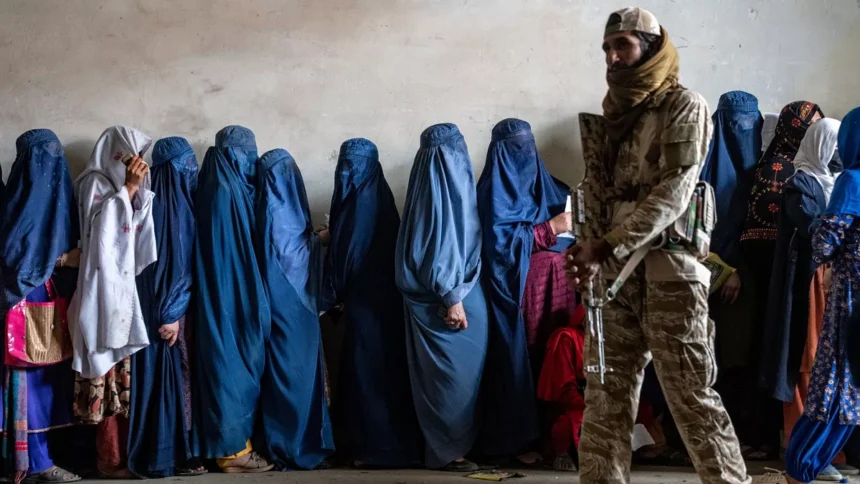RASC News Agency: The Lowy Institute, an independent Australian think tank specializing in international policy research, has released a report accusing the global community of passively observing the deteriorating situation of women under Taliban rule in Afghanistan, failing to take meaningful action. The report highlights the limited pressure exerted by many countries, particularly Western nations, on the Taliban regime.
The Institute draws attention to the legal campaign spearheaded by Germany, the Netherlands, Australia, and Canada, who have initiated proceedings to hold the Taliban accountable for violating the Convention on the Elimination of All Forms of Discrimination Against Women (CEDAW). Despite acknowledging that the International Court of Justice (ICJ) may be “a toothless tiger,” the Institute affirms that the court has jurisdiction to address the case.
Afghanistan signed CEDAW in 2003, and under the provisions of the convention, member states have the right to challenge or bring another member state to court for alleged violations. The Lowy Institute emphasizes that while the outcome of this legal challenge is uncertain, it represents the first time a country is facing accusations of “discrimination against women.” The report stresses the importance of patience for women’s rights advocates, noting that formal complaints against the Taliban cannot be filed immediately. The court’s procedures stipulate that an official declaration of dispute must precede a six-month period in which the parties involved are required to attempt a resolution.
Furthermore, the report points out the ICJ’s historically limited success in addressing such cases. Citing a United Nations observer, the Institute notes, “The ICJ is often seen as a venue where issues go to be forgotten.” Meanwhile, Canada’s Special Representative for Afghanistan, David Sproule, stated that if the Taliban does not reverse its human rights violations, particularly against women, Canada, along with Australia, the Netherlands, and Germany, will take the case of “CEDAW violations” to the ICJ.
Sproule discussed this matter in an interview with “The Globe and Mail”, explaining that these countries had shared their concerns with the Taliban for dialogue, but had yet to receive a response. In September of this year, on the sidelines of the United Nations General Assembly, Canada, Germany, Australia, and the Netherlands launched a legal campaign demanding accountability from the Taliban for its discrimination against women, with the potential for the case to be brought before the ICJ.
Foreign ministers from these nations have labeled the Taliban “violators of CEDAW” and vowed to pursue legal action before the ICJ. This initiative follows the Taliban’s three-year reign, during which they have introduced a new law, the “Law of Commanding Good and Forbidding Evil,” imposing severe restrictions on the rights and freedoms of Afghanistani citizens, particularly women. Among other prohibitions, this law forbids women’s voices and faces in public spaces and prohibits women from reciting religious texts in the presence of other women. These harsh measures have sparked widespread outrage among Afghanistani citizens and religious leaders.
David Sproule also expressed that significant dissatisfaction with the Taliban’s treatment of the Afghanistani people persists within the country, and believes that increasing pressure will be necessary to force the Taliban to regain the support of the Afghanistani population.






